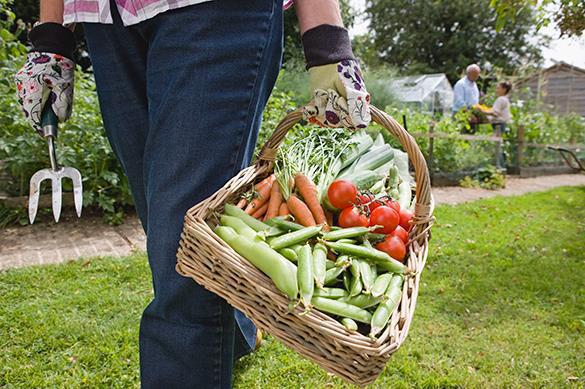During three years of food embargo, Russia destroys 17,000 tons of sanctioned food
Since August 2014, Russia has destroyed 17,000 tons of sanctioned food products, including 16,400 tons of vegetables and 500 tons of livestock products, the press service of the Russian Federal Agency for Agricultural Control said.

Departments of the agency in Bryansk, Smolensk, Tver and Pskov regions, located on the administrative border with Belarus, conduct most active efforts to identify sanctioned food products.
Russia introduced the food embargo against the EU, the USA, Canada, Australia, Norway and other countries three years ago, on August 6, 2014. Since then, the amount of domestic food products in Russian stores has been growing steadily against the backdrop of the steady decline in the share of imported foodstuffs.
According to the Russian Statistics Agency, the number of imported food products in Russian retail stores in the first quarter of 2014 made up 43%. Their percentage declined to 41% in 2015, 38% in 2016 and 37% in 2017.
Domestic products started dominating over imported ones "for the first time in many years," Russian Agriculture Minister Alexander Tkachev told RBC. Shipments of imported foodstuffs to the Russian Federation have dropped twice, he added.
According to the Ministry of Agriculture, the volume of supplies of foreign products by the end of 2016 amounted to $25 billion, while in 2013, prior to the embargo, the number was a lot higher - $43 billion.
Import substitution has been particularly successful in the meat industry. The share of imports in the consumption of, for example, pork has had a three-fold decrease - to eight percent in 2016 vs. 26% in 2013 (poultry imports dropped 2.5 times, to five percent).
In addition, imports of vegetables decreased twice - from 866,000 tons in 2013 to 463,000 tons in 2016, while the collection of domestic vegetables and fruits has been increasing. Over the past three years, the production of greenhouse vegetables has increased by 30%.
The products of the countries that fell under the Russian embargo were replaced with the products from other countries. Meat supplies from Canada, Germany and the United States were replaced with those from India and Chile. Russia's erstwhile fish supplier, Norway, was replaced with the Faroe Islands.
Pravda.Ru
Read article on the Russian version of Pravda.Ru
Subscribe to Pravda.Ru Telegram channel, Facebook, RSS!





